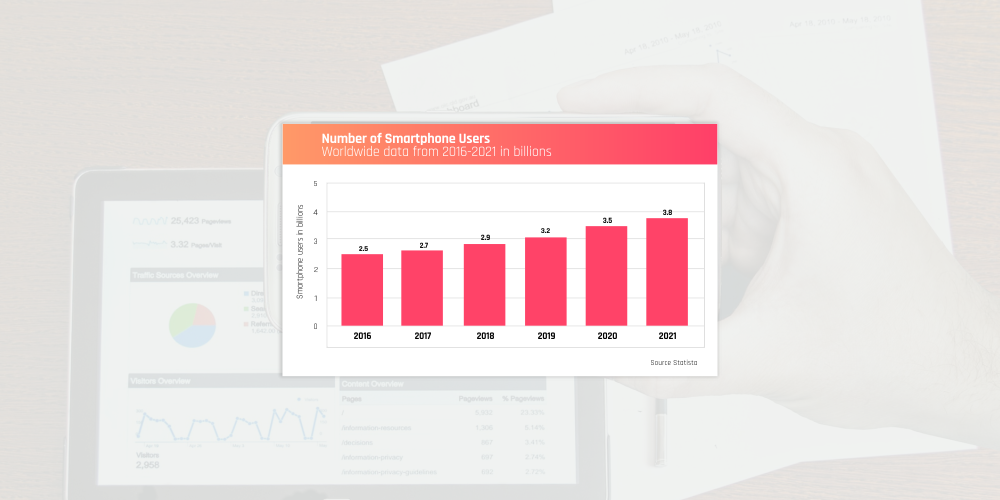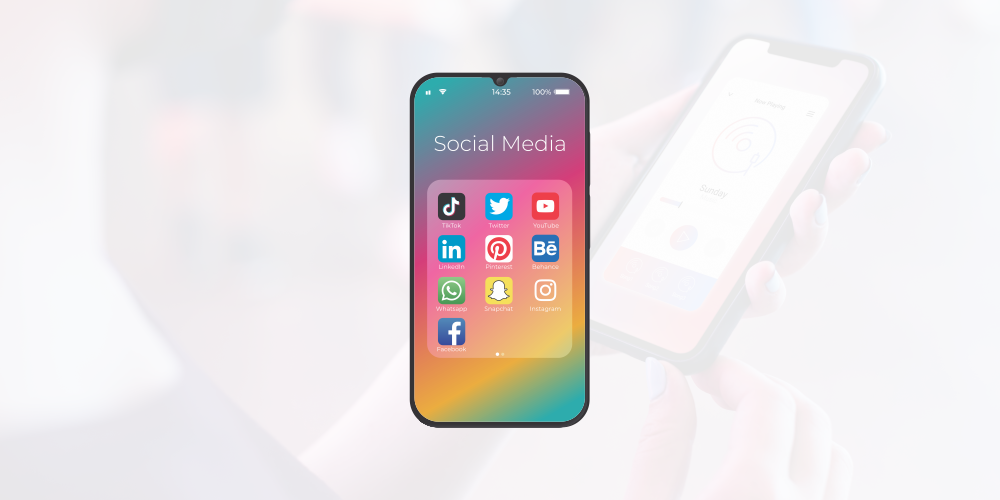Mobile App vs. Mobile Site: Which is Right for Your Business?

Without a doubt, the mobile era is upon us. The number of mobile users today far exceeds the number of desktop users. As such, businesses have acknowledged the need to leverage mobile platforms for attracting customers. They must optimize mobile websites and mobile apps to improve customer experience and increase conversions.
While entrepreneurs with deep pockets can afford to have both mobile apps and sites, others may have to choose one of them. One thing is for sure though, businesses must go mobile – especially because in 2021, the number of smartphone users worldwide has reached 3.8 billion, which is roughly 48.37% of the global population.
If you don’t take advantage of this, it’s like you are giving your competitors free rein. This is the dilemma, and it’s a problem of the wise. Building a mobile website or developing an app is easier said than done.
This post is meant to help you make an informed decision. We will discuss what mobile sites and mobile apps can do for businesses. Again, the big question is, which one is best for you?
Before we delve into the details, let’s take a look at the reasons why you must have a mobile presence.
- According to official Google statements, more than 50% of search queries globally now come from mobile devices.
- 50% of mobile searches lead to a purchase
- A Nielson survey revealed that 20% of smartphone owners admitted that they have made an online purchase using their phone at least once.
- 72% of consumers said they are more likely to avail a product or service from mobile-friendly sites
Numbers don’t lie. They only prove that if you’re not on mobile, you’re losing existing and prospective customers. You’re losing a lot of money.
Google has even stressed the need for businesses to have a mobile presence that it made some tweaks to its search engine in order to accommodate the surge of mobile users.
Mobile App vs. Mobile Site: What are the Similarities?
Let’s kick off with the similarities between the two.
- Both are designed to be accessed via mobile device (e.g. smartphone or tablet)
- Both integrate mobile-only features like click to call and geo-location mapping
- Both feature design elements that work seamlessly on smaller screens
- Both allow social sharing and mobile marketing functions
- Both can be structured for e-commerce/m-commerce
Mobile App vs. Mobile Site: What’s the Difference?
Now let’s take a look at the major differences… unlike a mobile website, a mobile app:
- Is mainly developed in the form of Android and iOS applications
- Isn’t directly accessible on the internet, it must be downloaded and installed
- Usually has content and features that are accessible even without a Wi-Fi connection
- Interacts with mobile device features like the camera, calendar, contact list, etc.
As a rule, a mobile website must be the first phase of your mobile marketing strategy. It’s the bare minimum for a business that needs to have a mobile presence in a marketplace that’s dominated by mobile devices.
On the other hand, a mobile app supplements the mobile website by assisting users in completing certain tasks faster and easier than they could on the mobile website.
Mobile Websites
A mobile website is basically the same as any other website as it consists of browser-based HTML pages that are accessed over the Internet. It is essentially a mobile version of a desktop website, but one that is exclusive for mobile use.
It can display text content, images, and video. However, the pages tend to be limited and each one is optimized to deliver what people need when using mobile devices to access websites.
Why Consider Having a Mobile Website?
- Target users don’t need to download anything. They only need a browser and an Internet connection to pop right into your website.
- Simple and cheaper to develop. Unlike native applications, mobile sites are cheaper to build because they don’t require a lot of programming language since they support different platforms and each device can use different mobile web browsers.
- Broader audience/wider reach. Because of flexibility on multiple devices and without restrictions on different types of screens, it’s easier to access a mobile website compared to a native app.
- Excellent extension of your brand. If your business has a desktop site, people will assume that you also have a mobile website. This is crucial because studies show that 50% of users tend to have negative impressions of a brand when they cannot access it from their mobile phones.
- Improve your search engine rankings. The major search engines like Bing and Google favor websites that deliver excellent mobile experience when ranking on the search page.
- Greater flexibility on updates. Mobile websites don’t require users to accept changes (e.g. upgrades or updates) like a mobile app demands from its users. Once the updates are implemented, they appear in real time and the info is easily accessible on site.
Mobile Apps
A mobile app is a type of software application that’s highly specialised and intended to run on mobile devices such as smartphones and other portable, wireless gadgets like tablets and smart watches. They are designed and developed separately from your website, and while mobile apps are typically small software units with limited functionality, they still provide users with quality services and rich experiences.
Why You Need a Mobile App
- Studies show that people are spending 3.1 hours a day on mobile apps. This translates to spending over 25% of their waking life in apps!
- Mobile apps serve a multitude of functions. Developers help users find solutions to their daily needs or make their lives more comfortable. In general, mobile apps can be classified into seven functions:
- M-banking apps
- Online shopping
- Socializing
- News apps
- Apps for showing directions
- Entertainment, radio, and games
- Apps for media sharing (i.e. photos and videos)
- Mobile apps reinforce your brand. Since a mobile application is an entirely separate entity from your business or company website, it offers new branding opportunities. This means you can experiment with new branding styles and strategies.
- Mobile apps offer better personalisation. This is about offering targeted communication to users according to their location, interests, usage behavior, etc. It’s therefore easy to treat users with a personalised experience.
After installing the app, users can set up their preferences, based on which they can receive customised content. This is important because when you serve users with personalised content, they are more likely to make a conversion - Mobile apps make you stand out from the competition. Having an app gives you a head start since you are able to give customers another way to reach you. Mobile apps also give you that ‘cool factor’, transforming “business as usual” into a more efficient and engaged environment with the potential for huge benefits.
How Your Mobile App and Mobile Website Can Work Together
As mobile apps become easier to build and maintain, a lot of businesses are now combining them with a mobile-friendly website. This ‘win-win’ combination will give you the best chance to deliver personalised content and expand your reach to new customers.
The ideal way to do this is to promote your app on your website, enticing visitors to download and install your mobile app. This will give you an added channel for reaching out to loyal and prospective customers. You can quickly contact them via push notifications and take full advantage of the capabilities of your app.
Parting Words…
We firmly believe that all businesses must have at least a mobile website. While it’s tempting to think that websites have passed their best before date, nothing can be farther from the truth. They can still play a dominant role.
However, if you wish to boost your business’s mobile presence, getting a mobile app is imperative. You can open up new revenue streams and deliver better service to your customers.
As our world increasingly becomes mobile-driven, the question for businesses shouldn’t be whether they ought to have a mobile website or build a mobile app. Focus on finding means on how to effectively integrate the two so you can have a mobile presence that rakes in revenue by advancing your marketing goals.
If you have questions regarding the topic, feel free to get in touch with our team. If you need a hand in designing and developing your mobile website and mobile app, we’ll be more than willing to help. Contact us today or request for a no obligation quote





